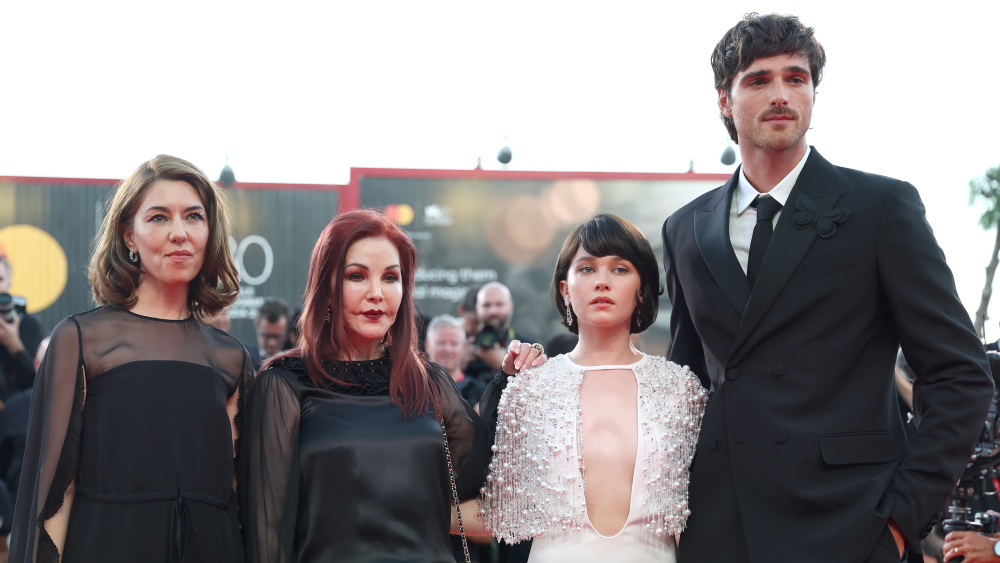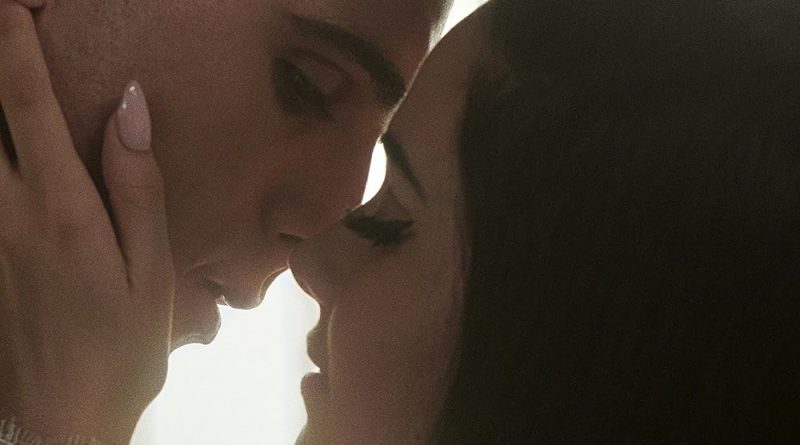LFF 2023: Priscilla (review)
Director: Sofia Coppola
Cast: Cailee Spaeny, Jacob Elordi
LFF update: I first saw Priscilla at its premiere at the Venice film festival. I didn’t care for it. I re-watched it at the London film festival and still don’t care for it.
Yes, it’s well shot and decently acted but there’s an underlying meanness to the film which makes it unloveable. It’s reminiscent of the Pablo Larrain film about Diana, Princess of Wales, Spencer which I also found unlikeable.
Both films cast as their protagonist an infatuated young woman who succeeds in marrying her prince charming but finds she has to take on something mightier than just the marriage. For Diana, it was the British monarchy. For Priscilla, it was the worldwide fame of Elvis Presley. Each woman is presented as a virtual prisoner albeit in a gilded cage, a tiny, lone girl fighting a huge, powerful dragon. Both films conveniently glide over the role of each young woman’s family and friends, the immense benefits they and those families and friends gained from the marriage, the fact that without their respective marriages neither woman would have films made about her and that each went into the marriage with considerable public knowledge available to them of what it might entail. That’s not to say the actual experience was not painful for each but the complexities of a marriage that goes wrong are not explored in either film.
Both films attempt to take a modern feminist stance but give their heroine no agency, instead, making her a perpetual victim and permanently miserable which is neither endearing or likely accurate.
Both impose current social opinions on the 1950s and a 1000 year old institution.
Review
Summary: The opening shots of Priscilla’s bare feet burrowing into the rich shag pile carpets of Graceland to the Ramones ‘Baby, I love you’ is a goosebumps on the arms start to a film which, unfortunately, then never quite takes off.
A movie about Priscilla Presley is like a standalone Catwoman film in the Batman multiverse – sure she makes sense in relation to the caped crusader (in this case Elvis) but can she carry a whole production on her own?
Unfortunately, the answer, after watching Sofia Coppola’s new film Priscilla is a king sized no.
This Priscilla Presley origin story is a disappointingly slow, almost drab look at the life of a young girl who, in 1959, won the jackpot, as far as millions of women were concerned, when she met Elvis Presley and eight years later went on to win the Las Vegas sized marital top prize of a wedding ring from the man every girl wanted. Everything about the film seems low key, low budget and low lit, as if it’s afraid to make too much of a noise or be noticed. As if it is determined to be the anti Luhrmann.
After the excessive, brash, frenetic razzmatazz of Baz’s showman, the film appears to offer the antidote; the contemplative, reflective feature about the underbelly of the show. Except Priscilla isn’t contemplative or reflective enough. It’s a collection of scenes about a young girl and later a young woman, who is much smaller than the big, powerful, rich, world famous man she hungers for. Much is made of the huge disparity in height between the two leads, Jacob Elordi and Cailee Spaeny. Look, a tiny girl lost in a big man’s world. Look, a tiny girl on a tight leash in a rich man’s huge compound while he goes out to do whatever he pleases. Look, a tiny girl, always creeping around, taking up as little space as possible while the big, powerful man fills the rooms with his personality, his fame and his ever present male entourage.
The imagery of the power imbalance is strong, the message is clear, the shots are clever and sometimes visually pleasing. But it’s often style over substance. Priscilla doesn’t provide room for emotional engagement, until the final scene. At least Baz gave us emotion and moments to feel the grief, sadness, rapture, betrayal and joy of his characters amidst the spectacle. Priscilla presents a montage of scenes and images designed to convey a story without delving too deep into that story or putting it in any context. It’s like viewing lives through glass which acts as a barrier to any real insight we might gain into why any character behaves as he/she does. The accompanying dialogue is serviceable but unmemorable and skims the surface of what is left unsaid.
Perhaps the primary problem lies in the story itself, or, at least, the one Priscilla Presley is willing to tell and this adds constraints to the film Coppola could ultimately make.
- It’s not quite a love story. The real Priscilla has often told of the enduring love between herself and Elvis but what the film shows (very well) is Priscilla’s teenage infatuation with the heady idea of being Elvis Presley’s girl and curiosity and need for emotional connection on the part of Elvis, but little more. The relationship is not shown to grow in any meaningful way. That may be, in large part, due to the lack of chemistry between Elordi and Spaeny but it makes it harder to invest in the couple.
- It’s not quite a biopic. It’s about the life of one relationship and leaves out key elements of Priscilla’s tale, for example, her affair with the married karate instructor Elvis hired for her. The instructor is shown briefly but in the innocent setting of a group lunch. To show more would have dismantled the narrative of the Priscilla the rest of the film had carefully built. It would also have made the ending less affecting.
- It’s not quite a cautionary tale or dark fairytale, as some have dubbed it. Even though Priscilla is depicted as a sort of lost princess trapped in a claustrophobic Graceland castle, endlessly waiting for her Prince to return, at this point she was not married to him, she knew he had other romantic and sexual interests and there’s no suggestion she was being kept against her will. If anything, her parents questioned why she didn’t move on from him. Similarly, Elvis not wanting Priscilla to have a career is indicative of the time rather than particular personal villainy.
- It’s not quite a character study. Priscilla, as a person, is no clearer at the end of the film than she is at the beginning.
The real Priscilla, in interviews, does not present herself as having been a victim. Movie Priscilla is cast as one.
For a film by the director who made Marie Antoinette, the costumes are disappointingly cheap looking and even Priscilla’s famously huge ‘60s beehive is staidly low. The sets give the film an air of a regional production of a big West End hit. It also doesn’t help that none of the actors look, sound or move like the people they are playing. The supporting actors are little more than human props. This helps heighten the loneliness of Priscilla when Elvis was away making films or touring (and being ‘romantically linked’ with glamorous Hollywood starlets in the showbiz magazines Priscilla avidly read) but again, it makes for silent imagery rather than compelling drama.

What does work though, is the on point soundtrack. It’s musically a scorcher but also subtly, deftly tells the story the visuals and dialogue don’t. Coppola is known for choosing anachronistic but perfectly suited music for her films and this collection is one of her best.
While Elordi doesn’t look like Elvis, he captures the soulful, southern boy, polite charm of the young superstar that beguiled so many.
As Priscilla, Spaeny (25) is so convincing as a 14 year old you wonder if another actress will have to play the older version. But she effortlessly glides into maturity and her adult Priscilla is as believable. Her movements are slow, delicate, deliberate. There is no doubt this is her story and she will tell it at HER pace. Coppola matches her respectfully, moving the camera and direction with equal restraint, observing, never judging and thereby producing a film that is as light and subtle as the unspoken word.
Unfortunately for this viewer, that lightness and subtlety was at the expense of what could have been a more compelling watch.
3/5

